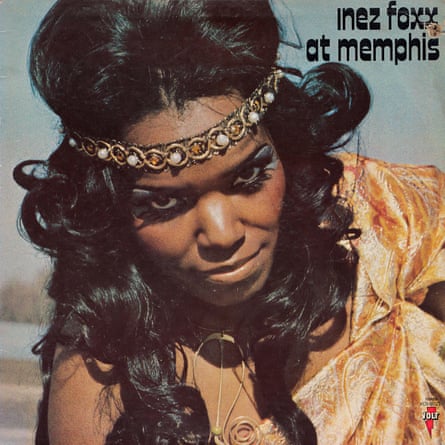The US singer Inez Foxx helped popularise soul music in the UK and, from the mid-1960s to early 70s, was a regular performer in Britain. Inez, who has died aged 84, sang in a duo with her brother, Charlie, and they were often mistakenly thought to be husband and wife rather than siblings.
They were best known for their 1963 hit single, Mockingbird, a witty back-and-forth between Charlie’s deep voice and Inez’s wry gospel wail. Together, the Foxxes recorded more than 50 memorable songs, and Inez also enjoyed a brief solo career.
They were far more popular as a live act than as recording artists. The Beatles praised them and the Rolling Stones booked them as support for a 1964 UK tour. Dusty Springfield recorded a cover of Mockingbird for her album A Girl Called Dusty (and, in 1968, sang it on her ITV television show It Must Be Dusty, with Jimi Hendrix as her duet partner).
Chris Blackwell, the founder of Island Records, having first heard Mockingbird in Kingston, Jamaica, in 1963, negotiated a licence to release it in the UK, and ensured it was the first record issued on his UK Sue label. It was eventually a UK hit on a re-release in 1969, but by then Inez and Charlie’s working relationship was coming to an end.
Inez’s striking looks, strong voice, assured stage presence and warm, engaging character won over audiences. That she never experienced greater chart success is one of those conundrums often to be found in popular music.
In 1974 she suddenly stopped recording and performing. A loyal UK audience, especially among northern soul aficionados, continued to champion her music and Mockingbird retained its popularity, sung by many and featuring in the 1994 film comedy Dumb and Dumber and such popular TV series as The Simpsons and Will & Grace. Yet Inez maintained her silence, one of those who walked away from music at the height of their talents.
Born in Greensboro, North Carolina, to John and Peggy Johnston, Inez had eight siblings and was closest to Charlie, who was two years her senior. From an early age Inez joined her family singing at their local Baptist church and was singled out for her vocal talent. She attended Dudley high school and, upon graduating, joined the Gospel Tide Chorus and began working the southern church circuit. Her talent was spotted by a local impresario, Charles Fuller, who persuaded Inez to go solo and sing R&B.
Charlie was determined to work with Inez and, in 1959, overcoming parental disapproval, they journeyed to New York City. Inez soon had a recording contract with Brunswick Records and in 1960 she released two unsuccessful 45s as Inez Johnston. The siblings developed an act as a duo and adopted Foxx as their stage surname. In early 1963, noticing the African-American music entrepreneur Harry “Juggy” Murray leaving a restaurant, they stopped him and auditioned on the sidewalk, performing Mockingbird, a song they had worked up from a nursery rhyme.
Murray was impressed and signed the duo to Sue Records. Mockingbird was released in summer 1963, credited solely to Inez Foxx, and it quickly became a hit on both US pop (No 7) and R&B (No 2) charts. Murray rushed out Foxx’s debut album, Mockingbird – again credited to Inez, though Charlie wrote or co-wrote with Inez 10 of the album’s 12 songs, played guitar on all and sang on several.
By 1964 Murray – having played a pivotal role in launching Ike & Tina Turner – began billing the Foxxes’ recordings as Inez & Charlie Foxx. Still they struggled to make an impact on the charts. Guy Stevens, whom Blackwell had appointed head of UK Sue, proved a formidable promoter of the duo, ensuring their records were played regularly on British pirate radio (BBC radio at the time gave little airtime to R&B).
Thus they became regular visitors, backed on their first UK tour by the young Birmingham band the Spencer Davis Group. They appeared on the pioneering ITV music show Ready Steady Go and their 1964 single Hurt By Love reached No 40 in the UK. In 1966 they signed to Dynamo Records, where they began working with the celebrated producer and songwriter Luther Dixon. Inez married Dixon and co-wrote songs with him, including I Love You 1,000 Times, a 1966 hit for the Platters. The duo’s Dynamo releases continued to be of a high standard – (1-2-3-4-5-6-7) Count the Days in 1967 gave them their final US R&B hit, while that year saw the release of their album Come By Here.
In 1969 Charlie moved to Mobile, Alabama, launched his own label, Tee Off, and focused on signing and producing soul singers. Inez continued to record for Dynamo and tour the UK. In the early 70s she divorced Dixon and signed to Volt, a subsidiary of Stax Records. Her 1973 album At Memphis found Inez confidently handling strong, contemporary songs, yet she failed to produce a breakthrough hit. In 1974 she rejected Stax’s offer of the song Woman to Woman, which became a huge hit instead for Shirley Brown, prompting Inez’s decision to leave the music industry.
That year, James Taylor and Carly Simon had a US Top 5 hit with their recording of Mockingbird, and the song has since enjoyed a remarkable life: many artists have recorded it, from the British band the Belle Stars through to the American country singer Toby Keith.
In 1990 the London label Ace Records reissued Inez’s entire recorded output on At Memphis & More, then, in 2001, gathered Inez and Charlie’s Sue and Dynamo singles on The Dynamo Duo. Yet Inez refused all entreaties to perform at oldies concerts and northern soul festivals, preferring to live quietly in the Los Angeles suburb of Compton.
Charlie died in 1998. Inez is survived by a sister, Jean.

